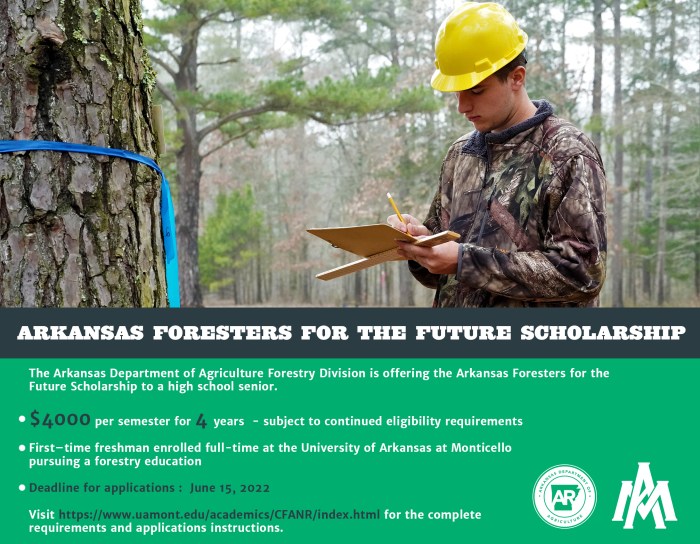Lumberjack scholarships offer a unique pathway into the forestry industry, providing financial assistance to aspiring professionals. These scholarships recognize the vital role of skilled lumberjacks and foresters, and aim to cultivate the next generation of leaders in sustainable forestry practices. They are often funded by a variety of sources, including logging companies, forestry associations, and organizations committed to environmental stewardship. Securing a lumberjack scholarship can significantly reduce the financial burden of education and training, opening doors to exciting and rewarding careers.
The eligibility criteria for these scholarships vary, but often include academic merit, demonstrated commitment to forestry, and sometimes even practical experience in logging or related fields. Successful applicants typically possess a strong work ethic, physical stamina, and a deep understanding of environmental responsibility. This guide explores the landscape of lumberjack scholarships, detailing funding sources, application processes, and the lasting impact these opportunities have on both individuals and the forestry industry.
Scholarship Overview

Lumberjack scholarships are a unique type of financial aid designed to support students pursuing careers related to forestry, logging, and other wood-related industries. These scholarships recognize the importance of skilled labor in these sectors and aim to encourage the next generation of professionals. While not as common as scholarships for more traditional fields, they represent a valuable resource for those passionate about working with wood and the environment.
Eligibility criteria for lumberjack scholarships typically center around a student’s academic performance, career aspirations, and sometimes, demonstrated involvement in forestry-related activities. Many scholarships prioritize students from rural areas or those with family histories in logging or forestry. Some may also require applicants to demonstrate financial need.
Potential Eligibility Criteria
A typical lumberjack scholarship application might require applicants to meet several criteria. These might include maintaining a specific GPA, demonstrating a commitment to a forestry-related field of study (such as forestry management, arboriculture, or woodworking), and providing letters of recommendation that attest to their character and work ethic. Applicants might also be asked to submit essays detailing their career goals and their understanding of the challenges and opportunities within the lumber industry. Proof of residency in a specific region or participation in relevant extracurricular activities could also be a requirement. Finally, some scholarships will have financial need components, requiring applicants to submit documentation regarding their family income.
Institutions Offering Lumberjack-Related Scholarships
While a dedicated “lumberjack scholarship” program might not be widely advertised, several institutions and organizations offer scholarships that support students in forestry-related fields. These could include state forestry associations, universities with strong forestry programs (such as Oregon State University or the University of Washington), and private foundations focused on environmental conservation or sustainable forestry practices. Additionally, some lumber companies or industry associations might offer scholarships to encourage young people to enter the field. Specific scholarship opportunities often change annually, so thorough research is key.
Examples of Lumberjack Scholarships
| Name | Eligibility Requirements | Award Amount | Application Deadline |
|---|---|---|---|
| The Paul Bunyan Forestry Scholarship | 3.0 GPA or higher, declared forestry major, essay on sustainable forestry practices, resident of the Pacific Northwest. | $2,500 | March 15th |
| The Timber Tech Grant | Enrollment in a wood technology program, demonstrated financial need, two letters of recommendation. | $1,000 | April 30th |
| The Redwood Legacy Award | Family history in the logging industry, participation in a forestry-related extracurricular activity, essay on career goals. | $500 | May 1st |
Applicant Profile and Skills: Lumberjack Scholarship

Lumberjack scholarships, while less common than those in other fields, demand a unique blend of physical prowess, technical skills, and academic aptitude. Successful applicants demonstrate a commitment to the forestry industry and possess the attributes necessary to thrive in a demanding and often physically challenging environment. This section Artikels the key characteristics and qualifications sought by scholarship providers.
Applicants for lumberjack scholarships typically possess a strong academic foundation, though the specific requirements may vary depending on the scholarship provider and the level of education sought (e.g., trade school, community college, or university). This often includes a demonstrable understanding of science and mathematics, relevant to forestry and related fields.
Academic Requirements Compared to Other Vocational Scholarships
While lumberjack scholarships may emphasize a strong background in science and mathematics, reflecting the technical aspects of forestry, other vocational scholarships may focus on different academic areas. For instance, a welding scholarship might prioritize shop skills and technical drawing proficiency, while a culinary arts scholarship might emphasize food science and nutrition. However, all vocational scholarships share a common thread: demonstrated aptitude and interest in the chosen field, often evidenced through prior experience, coursework, or extracurricular activities. The academic prerequisites for lumberjack scholarships are thus comparable in their emphasis on relevant knowledge and skills, but the specific subject matter differs significantly based on the vocation.
Essential Skills for Successful Applicants, Lumberjack scholarship
A successful applicant for a lumberjack scholarship should possess a diverse skill set. This extends beyond mere physical strength and encompasses a range of crucial abilities. These skills are essential for both academic success and future career prospects in the forestry industry.
- Physical Stamina and Strength: Lumberjacking is physically demanding work requiring considerable endurance and upper body strength. Applicants should be able to withstand long hours of strenuous activity in challenging environmental conditions.
- Technical Proficiency with Forestry Equipment: Familiarity with chainsaws, felling tools, and other forestry equipment is crucial. Prior experience or demonstrable interest in learning these skills is highly valued.
- Safety Awareness and Practices: The forestry industry places a strong emphasis on safety. Applicants should demonstrate an understanding of safe operating procedures and a commitment to preventing accidents.
- Problem-Solving and Decision-Making Skills: Lumberjacks often face unpredictable situations requiring quick thinking and effective problem-solving. The ability to assess risks and make sound decisions under pressure is essential.
- Teamwork and Communication Skills: Many forestry operations involve teamwork. Effective communication and collaboration are crucial for efficient and safe work practices.
Potential Career Paths for Scholarship Recipients
Recipients of lumberjack scholarships can pursue a variety of fulfilling and rewarding careers within the forestry industry. These opportunities span various specializations and levels of experience.
The most direct path is as a professional lumberjack, working in logging operations, harvesting timber, and ensuring sustainable forestry practices. However, the skills and knowledge gained through a lumberjack scholarship can also lead to roles in forestry management, forest conservation, timber processing, and related fields. Some recipients might pursue further education to become forestry engineers, arborists, or researchers, contributing to the advancement of sustainable forestry practices and forest management strategies. The scholarship serves as a foundation for a successful and meaningful career in a vital industry.
Impact and Benefits of the Scholarship

The Lumberjack Scholarship program offers far-reaching benefits, extending beyond immediate financial assistance to foster a thriving and diverse forestry industry. Recipients gain access to crucial resources and opportunities, shaping their careers and contributing significantly to the long-term health and sustainability of the sector. This positive impact ripples outwards, benefiting not only individual recipients but also the forestry industry and the rural communities that depend on it.
The long-term advantages for scholarship recipients are substantial. Access to advanced training and education equips them with the skills needed to navigate the evolving landscape of forestry, fostering innovation and leadership within the field. This translates into higher-paying jobs, improved career prospects, and increased professional satisfaction. Furthermore, the networking opportunities provided through the scholarship program connect recipients with industry leaders and mentors, accelerating their career progression and creating a supportive professional community.
Contribution to the Forestry Industry
Lumberjack Scholarship recipients make invaluable contributions to the forestry industry. Their enhanced skills and knowledge base directly improve operational efficiency, promote sustainable forestry practices, and advance technological innovation within the sector. Many recipients become leaders in their respective fields, driving advancements in areas such as forest management, conservation, and timber processing. The scholarship program, therefore, acts as a vital pipeline for skilled and passionate individuals entering the industry, ensuring its future growth and sustainability.
Promoting Diversity and Inclusion
The Lumberjack Scholarship actively promotes diversity and inclusion within the forestry sector. By targeting underrepresented groups and providing financial support to individuals from diverse backgrounds, the program helps to broaden the range of perspectives and experiences within the industry. For example, the scholarship has supported women pursuing careers in traditionally male-dominated fields, such as logging and heavy equipment operation, and has also provided opportunities for individuals from rural communities and minority ethnic groups to pursue higher education and enter the forestry profession. This increased diversity fosters a more inclusive and equitable workplace, leading to improved innovation and problem-solving within the sector.
Positive Social and Economic Impacts on Rural Communities
The positive social and economic impacts of the Lumberjack Scholarship on rural communities are significant.
The following bullet points illustrate these impacts:
- Increased employment opportunities: Scholarship recipients often remain in their rural communities after graduation, contributing to local economies by creating jobs and supporting local businesses.
- Economic growth: The improved skills and expertise of scholarship recipients can lead to increased productivity and efficiency within local forestry businesses, boosting overall economic output.
- Improved infrastructure: Investments in forestry infrastructure, often spurred by the innovative work of scholarship recipients, can lead to better roads, communication networks, and other essential services in rural areas.
- Enhanced community vitality: The presence of well-educated and skilled individuals strengthens the social fabric of rural communities, attracting further investment and development.
- Environmental stewardship: By promoting sustainable forestry practices, scholarship recipients contribute to the long-term health and resilience of rural ecosystems, ensuring the continued viability of local communities that depend on them.
In conclusion, lumberjack scholarships represent a valuable investment in the future of forestry. By supporting talented individuals pursuing careers in this vital sector, these scholarships not only alleviate financial burdens but also foster innovation and sustainability within the industry. The long-term benefits extend beyond individual career success, contributing to the economic well-being of rural communities and the preservation of our natural resources. The journey to securing a lumberjack scholarship may be challenging, but the rewards—both personal and professional—are substantial and far-reaching.
FAQ Compilation
What is the average award amount for a lumberjack scholarship?
Award amounts vary greatly depending on the sponsor and the specific scholarship. Some may cover tuition only, while others may offer additional stipends for living expenses or equipment.
Are there lumberjack scholarships available internationally?
While many scholarships are regionally focused, some international organizations may offer forestry-related scholarships that could be applicable to lumberjacking. Researching international forestry organizations is recommended.
Can I apply for multiple lumberjack scholarships simultaneously?
Yes, applying to multiple scholarships increases your chances of securing funding. However, be sure to carefully read each scholarship’s eligibility requirements and deadlines.
What if I don’t have prior experience in logging?
Many scholarships consider applicants with a strong academic record and a demonstrated interest in forestry, even without extensive prior work experience. Highlight relevant coursework, volunteer work, or other experiences that showcase your commitment to the field.
Lumberjack scholarships, while less common, offer unique opportunities for students pursuing forestry-related fields. These specialized awards often complement broader academic scholarships, such as the Daughters of the American Revolution scholarship, found here: dar scholarship. The DAR scholarship, with its focus on academic merit, can provide financial support alongside those specifically tailored to lumberjack studies, creating a more comprehensive funding package for aspiring forestry professionals.